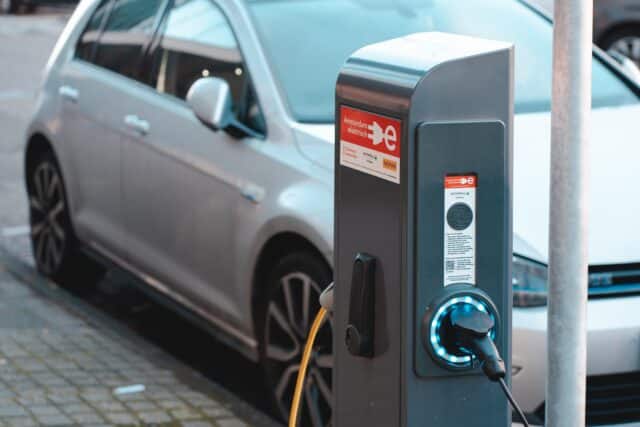Electric vehicles have technically been around for many years, but their performance and efficiency have consistently improved. These days, electric vehicles are capable of exerting tremendous power, allowing you to haul large loads and serve other commercial needs.
So should businesses that require powerful vehicles make the switch to electric? Are modern electric vehicles really powerful enough to contend with their gas-burning counterparts?
EVs and Gas-Powered Cars
Most people assume that electric vehicles are inherently less powerful than their gas-powered counterparts, but this isn’t necessarily the case. A typical gas-burning engine sounds very powerful when compared to an electric one since the electric one is silent. But realistically, because electric motors are simpler than combustion engines, EVs offer distinct advantages.
For example, EVs can provide full torque from a dead stop, offering immediate acceleration – no revving required. And because there are fewer moving parts involved, the entire system operates more efficiently.
The biggest drawback of this electric motor is that most EVs function using a single gear only, forcing EV manufacturers to carefully balance speed and acceleration. These cars can accelerate very quickly in exchange for a somewhat lower top speed. Since these speeds are still well above speed limits in most areas of the world, this doesn’t really affect the average driver.
But what about power? Can EVs handle massive loads the way traditional gas and diesel vehicles can?
The short answer is yes. For example, the International eMV Series is an electric truck with a vehicle performance of 335 HP, a battery capacity of 135 miles, and a GVW rating of up to 33,000 lbs. That makes it capable of handling any job a typical medium-duty truck could.
Future Developments
It’s also worth noting that we’re comparing electric vehicles and gas vehicles based on how they’re being developed and manufactured today. These technologies are always evolving, with engineers and innovators always looking for ways to make them bigger, better, and more efficient. In just a few years, we may have even more powerful, faster, and more efficient electric vehicles to choose from.
Keep in mind that doesn’t mean you should wait for better models to roll out. Today’s electric vehicles are exceptionally well designed and are essentially future-proof, as our entire country is gradually rolling out changes to better accommodate electric vehicles as the norm.
Other Considerations for Electric Vehicles
If you’re considering making the transition to EVs, there are some other factors you’ll need to keep in mind:
- Costs. Electric vehicles are typically more expensive than gas-powered vehicles – at least to start. Because electric vehicles can be charged, you won’t have to pay for gas; you’ll have to pay for the electricity, but in general, you’ll end up paying less for the power you need for the vehicle. Over time, you’ll save enough money to pay for the entire vehicle. Some EVs can pay for themselves in a year or less. As long as you’re willing to pay the money upfront, these vehicles make for great investments.
- Range. You may also be concerned about the range of electric vehicles, especially if you’re making long runs with heavy loads. On a full tank of gas, an average gas-powered vehicle can make it 300 miles fairly easily, while typical electric vehicles have an effective range of between 120 and 300 miles on a full charge. This range is wide because it depends on many variables, which fluctuate between models. If you’re carrying massive loads, this range may be shorter, but it’s still somewhat comparable to the range you’d get from a gas vehicle.
- Charging. What about charging stations? Are there truly enough charging stations to make it feasible to purchase electric vehicles for your business? The short answer is yes. There are now more than 53,000 public charging stations across the country, so it shouldn’t be exceptionally difficult to find a charging station when you need one. And because the range for modern EVs is so high, you may be able to get by simply charging each vehicle overnight.
- Sustainability. Are electric cars as sustainable as they’re made out to be? This question is a complicated one since we need to consider the ecological effects of constructing and distributing these vehicles, the pollution created by generating and supplying the electricity used to power these vehicles, and how these vehicles are used. Still, electric vehicles are a step in the right direction for environmental sustainability.
The Bottom Line
Electric vehicles come with several strengths and weaknesses, but the general public still has many misconceptions about how electric vehicles work. Modern EVs are almost as powerful as their gas-powered counterparts, and they come with many other advantages as well, so they’re worth considering for almost any application.
